But that scenario is looking more and more likely.
A day earlier, the United
States' closest ally, Great Britain, backed out of a possible
coalition. A U.N. Security Council meeting on Syria ended in deadlock,
and in the U.S. Congress, doubts about military intervention are making
the rounds.
Skeptics of military
action are invoking Iraq, where the United States government under
President George W. Bush marched to war based on a thin claim that
former dictator Saddam Hussein was harboring weapons of mass
destruction.
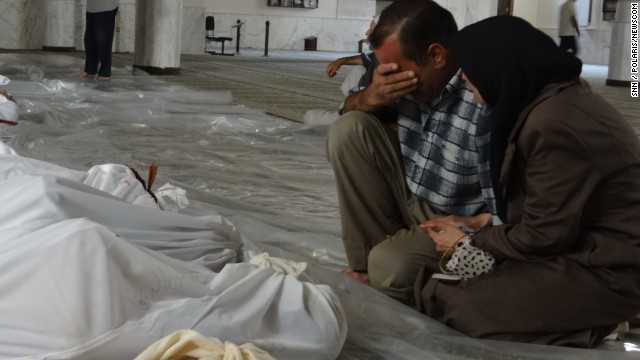 Photos: Suspected chemical attack in Syria
Photos: Suspected chemical attack in Syria
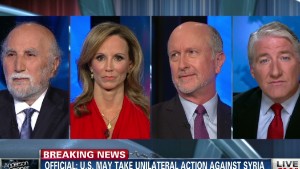 White House's goal in Syria unclear
White House's goal in Syria unclear
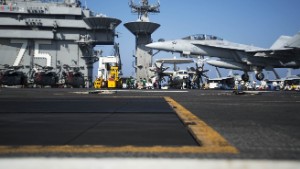 Ajami: I have faith in the Syrian people
Ajami: I have faith in the Syrian people
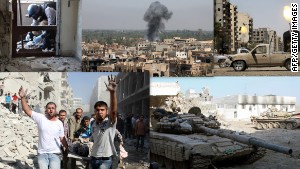 What steps will the U.S. take in Syria?
What steps will the U.S. take in Syria?
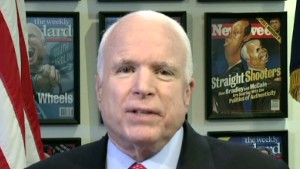 McCain: Syria is different from Iraq
McCain: Syria is different from Iraq
Opponents are conjuring
up a possible repeat of that scenario in Syria, though the intelligence
being gathered on the use of WMDs in Syria may be sounder.
An attack on President
Bashar al-Assad may prove to be politically unpopular. The American
public is not enthused by the prospect.
"Only 25% of the American
people support military action in Syria," former U.S. ambassador to the
United Nations Bill Richardson told CNN's Piers Morgan Thursday.
Convincing evidence
To shake off the specter
of the Iraq war, the public needs convincing that chemical weapons were
used and that al-Assad's regime was behind it.
"You have to have almost incontrovertible proof," Richardson said.
It's there, said Arizona
Sen. John McCain, and will be visible soon. He thinks comparisons with
Iraq are overblown and that doubts are unfounded.
"Come on. Does anybody
really believe that those aren't chemical weapons -- those bodies of
those children stacked up?" he asked Morgan.
Al-Assad's government
has claimed that jihadists fighting with the opposition carried out the
chemical weapons attacks on August 21 to turn global sentiments against
it.
McCain doesn't buy it.
"The rebels don't have those weapons," he said.
The president also needs
to assure Congress that a possible intervention would not get out of
hand, said Democratic Rep. Chris Van Hollen from Maryland.
"The action has to have a very limited purpose, and the purpose is to deter future use of chemical weapons," he said.
Alone or together?
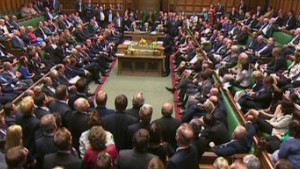 UK lawmakers say 'No' to military action
UK lawmakers say 'No' to military action
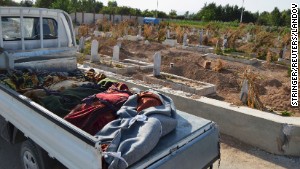 What intel does U.S. have on Syria?
What intel does U.S. have on Syria?
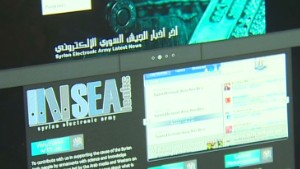 Syrian group claims it hacked NY Times
Syrian group claims it hacked NY Times
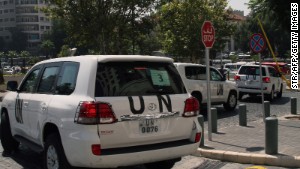 U.N. Security Council deadlocked on Syria
U.N. Security Council deadlocked on Syria
After British lawmakers
on Thursday voted down a proposal on military intervention, a senior
U.S. official, speaking on condition of anonymity, told CNN that going
it alone was a real prospect.
"We care what they think. We value the process. But we're going to make the decision we need to make," the official said.
A former director of the CIA believes Obama would face off with al-Assad alone.
"I can't conceive he would back down from a very serious course of action," retired Gen. Michael Hayden told CNN's Wolf Blitzer.
Hagel's response to the vote was more diplomatic.
The United States
respects the results, Hagel told journalists in Manila, the Philippines.
"Every nation has a responsibility to make their own decisions."
The U.S. will continue to consult with the British government and still hope for "international collaboration."
"Our approach is to continue to find an international coalition that will act together," he said.
Haunted by Iraq
The parliamentarians in
London shot down the proposal in spite of intelligence allegedly
incriminating the government of President Bashar al-Assad.
Britain's Joint
Intelligence Committee has concluded it was "highly likely" that Syrian
government forces used poison gas outside Damascus last week in an
attack that killed at least 350 people, according to a summary of the
committee's findings released Thursday.
"There is no credible
intelligence or other evidence to substantiate the claims or the
possession of CW (chemical weapons) by the opposition," Britain's Joint
Intelligence Committee concluded in a document released Thursday. "The
JIC has therefore concluded that there are no plausible alternative
scenarios to regime responsibility."
A yes vote would not have sent the UK straight into a deployment.
Cameron had said his
government would not act without first hearing from the U.N. inspectors
and giving Parliament another chance to vote on military action.
But his opposition seemed reminded of the Iraq war.
"I think today the House
of Commons spoke for the British people who said they didn't want a
rush to war, and I was determined we learned the lessons of Iraq, and
I'm glad we've made the prime minister see sense this evening," Labour
Party leader Ed Miliband told the Press Association.
The no vote came after a long day of debate, and it appeared to catch Cameron and his supporters by surprise.
For days, the prime
minister has been sounding a call for action, lending support to talk of
a U.S.- or Western-led strike against Syria.
"I strongly believe in
the need for a tough response to the use of chemical weapons, but I also
believe in respecting the will of this House of Commons," the prime
minister said.
"I get that, and the government will act accordingly," he said.
The government of France
supports military intervention, if evidence incriminates the government
of using poison gas against civilians.
But on Friday, President
Francois Hollande told French newspaper Le Monde that intervention
should be limited and not include al-Assad's overthrow.
Letter from al-Assad
Before the vote, Syria's
government offered its own arguments against such an intervention. In
an open letter to British lawmakers, the speaker of Syria's parliament
riffed on British literary hero William Shakespeare, saying: "If you
bomb us, shall we not bleed?"
But the letter also
invoked Iraq, a conflict justified on the grounds that Iraq had amassed
stockpiles of chemical and biological weapons and was working toward a
nuclear bomb -- claims that were discovered to have been false after the
2003 invasion.
"Those who want to send
others to fight will talk in the Commons of the casualties in the Syrian
conflict. But before you rush over the cliffs of war, would it not be
wise to pause? Remember the thousands of British soldiers killed and
maimed in Afghanistan and Iraq, not to mention the hundreds of thousands
of Iraqi dead, both in the war and in the continuing chaos."
British Commons Speaker John Bercow published the letter.
UN deadlock
Lack of support for military intervention at the United Nations on Thursday was less of a surprise.
Russia, which holds a
permanent seat on the Security Council, is one of Syria's closest allies
and is most certain to veto any resolution against al-Assad's
government that involves military action.
Moscow reiterated the stance Friday.
"Russia is against any
resolution of the UN Security Council, which may contain an option for
use of force," Deputy Foreign Minister Gennady Gatilov said on Friday.
A closed-door Security
Council meeting called by Russia ended with no agreement on a resolution
to address the growing crisis in Syria, a Western diplomat told CNN's
Nick Paton Walsh on condition of anonymity.
U.N. weapons inspectors
are now in Syria trying to confirm the use of chemical weapons. The
inspectors are expected to leave the country by Saturday morning.
They are to brief U.N. Secretary-General Ban Ki-moon, who in turn, will swiftly brief the Security Council on the findings.
Congressional jitters
The president is facing
doubts at home as well: More than 160 members of Congress, including 63
Democrats, have now signed letters calling for either a vote or at least
a "full debate" before any U.S. action.
The author of one of
those letters, Democratic Rep. Barbara Lee of California, said Obama
should seek "an affirmative decision of Congress" before committing
American forces.
More than 90 members of
Congress, most of them Republican, signed another letter by GOP Rep.
Scott Rigell of Virginia. That letter urged Obama "to consult and
receive authorization" before authorizing any such military action.
Congress is currently in recess until September 9.
White House spokesman Josh Earnest said Obama was still weighing a potential response to the chemical weapons attacks.
The president has said that he is not considering a no-fly zone and has ruled out U.S. boots on the ground in Syria.
Al-Assad has vowed to defend his country against any outside attack.
No comments:
Post a Comment